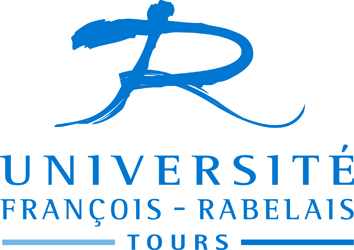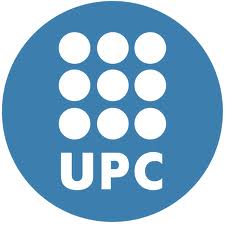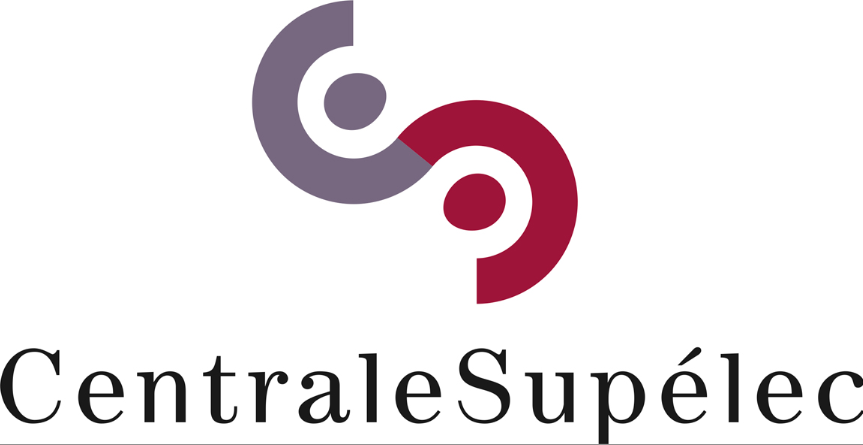Home >> Master Programme >> Course Content
Course Content
Business Intelligence Fundamentals 1 (ULB, 1st semester, 30 ECTS)
This semester is devoted to a first part of fundamentals of business intelligence and computer science. The curriculum covers two key topics of business intelligence, namely, data warehouses and business process management, providing thus the necessary prerequisites for the second semester of fundamentals offered by UFRT.
It also introduces the three specializations offered during the third semester by teaching the following topics: (1) Decision engineering, for the specialization Decision Support & BI, (2) Software Engineering, for the specialization Service-Oriented BI, and (3) Database Systems Architecture, for the specialization Distributed & Large-Scale BI.
The semester is composed of the following 6 courses:
- Data Warehouses (DW, 5 ECTS, Prof. Toon Calders). This course introduces the concepts and techniques necessary for designing, implementing, exploiting, and maintaining data warehouses. More precisely, this includes multidimensional databases and data warehouses, OLAP, reporting, and ETL processes.
- Business Process Management (BPM, 5 ECTS, Prof. Toon Calders). This course introduces basic concepts for modeling and implementing business processes using contemporary information technologies and standards, such as Business Process Modeling Notation (BPMN) and Business Process Execution Languages (BPEL).
- Applied Operational Research (AOR, 5 ECTS, Prof. Yves De Smet). The goal of this course is to introduce some major chapters of operational research. The main aim is to illustrate how mathematical models and specific algorithms can be used to help decision makers facing complex problems (involving a large number of alternatives, multiple criteria, uncertain or risky outcomes, multiple decision makers, …).
- Advanced Databases (ADB, 5 ECTS, Prof. Esteban Zimanyi). Today,databases are moving away from typical management applications, and address new application areas. For this, databases must consider (1) recent developments in computer technology, as the object paradigm and distribution, and (2) management of new data types such as spatial or temporal data. This course introduces the concepts and techniques of some innovative database applications.
- Database Systems Architecture (DBSA, 5 ECTS, Prof. Stijn Vansummeren).
In contrast to a typical introductory course in database systems where one learns to design and query relational databases, the goal of this course is to get a fundamental insight into the implementation aspects of database systems. In particular, we take a look under the hood of relational database management systems, with a focus on query and transaction processing. By having an in-depth understanding of the query-optimisation-and- execution pipeline, one becomes more procient in administering DBMSs, and hand-optimising SQL queries for fast execution.
- HumanitiesOne of the following two courses, depending on the mother tongue of the students – French Language Course for Foreigners (5 ECTS, Prof. Angelica Vallario); History of the French Language and Francophonie (5 ECTS, Prof. Annick Englebert).
Business Intelligence Fundamentals 2 (UFRT, 2nd semester, 30 ECTS)
This second semester devoted to fundamentals aims at providing students with understanding, knowledge, and skills in the key areas of modern decision making systems. The curriculum is designed to provide a deep investigation of key theoretical concepts and techniques in BI, from the now classical technologies like data warehousing and data mining to advanced concepts like natural language processing, modern search engines technologies and user-centric approaches.
This semester consists of the following 6 courses:
- Advanced Data Warehousing (ADW, 5 ECTS, Dr. Patrick Marcel) The aim of this course is to complement the course Data Warehouses (Semester 1) in its study of database technology used in Business Intelligence. A particular focus is given on the problems posed by heterogeneous data integration and data quality on the one hand, and on leveraging OLAP workload on the other hand. Classical notions of data warehousing and OLAP are recalled and developed: architecture, ETL, conceptual and logical design, query processing and optimization. Advanced topics like query personalization and recommendation are introduced.
- Knowledge Discovery and Data Mining (KD&DM, 5 ECTS, Prof. Arnaud Giacometti). This course gives students a detailed understanding of the strengths and limitations of popular data mining techniques. It also allows students to understand the problems associated with the computational complexity issues in data mining.
- XML and Web Technologies (X&WT, 5 ECTS, Dr. Béatrice Bouchou-Markhoff). The advent of the World Wide Web has given rise to multiple technologies and techniques for exchanging data on the Web. This course studies these technologies for understanding the theory underlying these technologies but also to understand in what scenarios a certain technology is applicable.
- Information Retrieval (IR, 5 ECTS, Dr. Veronika Peralta). This course studies the processing, indexing, querying, organization and classification of textual documents. It also gives the foundations of natural language processing and its use in information retrieval.
- Business Intelligence Seminar (BIS, 5 ECTS, Dr. Patrick Marcel). This course presents current trends and recent developments in the domain of BI. It is designed and jointly taught by all consortium partners (main and associated) and will involve guest speakers presenting their organization, the three specializations, research topics, internships, and Master’s thesis subjects for the second year of the master.
- Humanities (5 ECTS, Prof. Thomas Devogele). One of the following courses, depending on the mother tongue of the student and her/his choice of a specialisation:
- French Language Course for Foreigners.
- German Language Course for Foreigners.
- Spanish Language Course for Foreigners.
European Business Intelligence Summer School (Summer after the 2nd semester)
Students will attend the summer school organized annually by one partner institution. Presented by leading researchers in the field, it represents an opportunity for students to equip themselves with the theoretical, practical, and collaboration skills necessary for developing challenging Business Intelligence applications. Furthermore, industrial presentations will allow participants to gain a deep understanding of current product offer.
More information on the summer school can be found in the Summer School page.
Decision Support and Business Intelligence (ECP, 3rd semester, 30 ECTS)
This specialization focuses on models and technologies related to Business Intelligence and decision-support systems. With a strong focus on unstructured data and semantics, this specialization covers topics induced by the evolution towards next-generation Business Intelligence. This specialization covers theoretical foundations such as advanced data mining as well as new models for Business Intelligence and decision support such as ontologies, graphs models and mining and models for decision-making in uncertain situations.
The semester is composed of the following 6 courses:
- Visual Analytics (VA, 5 ECTS, Dr. Jean-Daniel Fekete). This course aims to help students understand the emerging, multidisciplinary field of VA, to familiarise them with current VA technology, and help them gain the foundations to building visual analytics tools and systems using real world data.
- Data Mining and Machine Learning (DMML, 5 ECTS, Pr. Antoine Cornuéjols). The goals of this course are to allow the students to discover and practice advanced techniques of data mining and machine learning. Discover their principles, but also their variants, their applications and their weaknesses.
- Corporate Semantics and Semantic Web (CS&SW, 5 ECTS, Gabriel Kepeklian). This course aims at presenting semantic technologies and the benefits to use them in companies for various applications such as semantic information search, recommendation, question and answering systems, search- based applications.
- Decision Modeling (DM, 5 ECTS, Dr. Valentina Ferretti). This course aims at presenting classical decision models with a special emphasis on decision making in uncertain situations, decision with multiple attribute, and decision with multiple stakeholders. During the course, various applications will be presented, emphasizing the practical interest and applicability of the models in real-world decision situations.
- Introduction to innovation and research (II&R, 5 ECTS, Pr. Nacéra Bennacer). The objectives of this course are to provide industrial and research presentations for students from the main BI software editors and clients as well as researchers in this domain. The European research context as well as intellectual properties, incubators and start-up creation will be presented. Students will also develop a research project in a collaborative way.
- Humanities (5 ECTS) This course covers French as a foreign language as well as soft skills (such as soft employability), European institutions, privacy. These courses can be done in videoconference or by podcast for all students.
Service-Oriented Business Intelligence (UPC, 3rd semester, 30 ECTS)
This specialization focuses on service companies and service-oriented architectures. The curriculum is designed to provide generic knowledge about services and service science, as well as specific techniques and tools to analyse and make decisions in this kind of business. Service-oriented architectures and protocols to implement information factory will be introduced and practised, while group work and project management skills and competences will be developed in a project-based learning environment around a specific BI project. Management knowledge and skills will also be developed.
This specialization consists of the following courses:
- Service Oriented BI (SOBI, 6 ECTS, Dr. Alberto Abello). This course analyzes the specificity of the service sector and present specific techniques to engineering their systems. The course also analyzes to which extent Data Warehousing can be considered a service, and use the same techniques in its engineering methods.
- BI Project (SE&BIP, 6 ECTS, Dr. Oscar Romero). In this course,students will undertake a BI project using software development support tools. The work is realized in groups and takes place in an industrial setting.
- Web Services (WS, 6 ECTS, Dr. Carles Farré). This course covers the development Web services and investigate how they are being used in eal-world” Web applications, such as those built by Amazon, Twitter, and Google. Other topics will include studying the REST style of developing Web applications as well as investigating how Web 2.0″ concepts relate to the Web services landscape.
- Viability of Business Projects (VBP, 6 ECTS, Dr. Marc Eguiguren). This course focuses on the main techniques used in analysing the viability of new business ventures: business start-up or the implementation of new projects in the world of services or in the specific field of BI. This project-oriented, eminently practical subject is aimed at each student’s being able to draft a realistic business plan.
- Humanities (6 ECTS, Dr. Miquel Barceló). This module is compound of three courses: (1) Spanish (or Catalan) for foreigners (2.5 ECTS), (2) Orientation Week of UPC for international students (0.5 ECTS), and (3) Social and Environmental Aspects of Information Technology (3 ECTS). All three courses will be evaluated separately and the overall mark of the course will be the weighted average of those marks.
Distributed and Large-Scale Business Intelligence (TUB, 3rd semester, 30 ECTS)
This specialization focuses on technologies and systems that enable data analytics on huge data sets. Students will learn the internals of databases and data analytics systems, from data representation, to query processing, multidimensional indexing and query optimization. A particular focus will be given to distributed analytics of huge data sets on a distributed, parallel system as well as the processing of textual data. Lectures will be accompanied by a hands-on lab course where students implement a data analytics engine as well as a student project where a student team will design and implement a solution to a practical analytics problem.
This specialization consists of the following courses (students must choose between H&DIS and LSDADM):
- Big Data Analytics Seminar (BDASEM, 3 ECTS, Prof. Volker Markl). Participants of this seminar will acquire knowledge about recent research results and trends in the analysis of web-scale data. Through the work in this seminar, students will learn the comprehensive preparation and presentation of a research topic in this field. In order to achieve this, students will get to read and categorise a scientific paper, conduct background literature research and present as well as discuss their findings.
- Implementation of a Database Engine (IDBE, 6 ECTS, Prof. Volker Markl). In this lab course students will learn how to implement components of a query processor with focus on complex queries as they occur in data warehouses and OLAP. Students will create a working SQL query processor that can answer a set of basic analytical queries.
- Heterogeneous and Distributed Information Systems (H&DIS, 6 ECTS, Dr. Ralf Kutsche). In this course students will gain conceptual, methodological and practical knowledge about the development and integration of modern distributed, heterogeneous information systems based on the concepts of model integration, data integration, promotion of information systems and metadata management for Business Intelligence.
- Scalable Data Science: Systems and Methods (SDSSM, 6 ECTS, Prof. Volker Markl). The focus is of this module is to get familiar with different parallel processing platforms and paradigms and to understand their feasibility for different kinds of data mining problems. For that students will learn how to adapt popular data mining and standard machine learning algorithms such as: Naive Bayes, K-Means clustering, PageRank, Alternate Least Squares, or other methods of text mining, graph analysis, or recommender systems to scalable processing paradigms. Students will subsequently gain practical experience in how to analyse Big Data on parallel processing platforms such as the Apache Big Data Stack (Hadoop, Giraph, etc.), the Berkeley Big Data Analytics Stack (e.g., Spark) and Apache Flink.
- Big Data Analytics Projects (IMPRO, 9 ECTS, Prof. Volker Markl). In this course students will learn to systematically analyze a current issue in the information management area and to develop and implement a problem-oriented solution as part of a team.
- Humanities: Interdisciplinary Communication (IC, 6 ECTS, Dr. Achim Goeres). In this course students will learn to work on their authentic presentation and what kind of possibilities of intervention they have working in groups (knowledge about role identification and group dynamics). This course brings into focus multi-cultural aspects of communication.
- Humanities/Alternative: German Language for Foreigners (GF, 6 ECTS, Johanna Bräutigam). From 2016, there is an alternative “humanities” option: IT4BI students can choose one of the German language classes “Deutsch für Ausländer”, at level A1 (beginners) or level A2 (advanced), provided by ZEMS/TU Berlin.
Master’s Thesis (4th semester, 30 ECTS)
During the fourth semester, students are required to put into practice what they have learned during the previous semesters. This is achieved by a master’s Thesis that can be done either as a placement in the industry or an internship in any full or associated partners. The thesis is evaluated jointly. The jury will be composed of one member from each full partner, one associate academic partner, and one associate industrial partner. The thesis work will be considered for submission to scientific conferences.
More information on master’s theses can be found in the Achievements of IT4BI page.
Final Event: “Master’s Theses Defences and Graduation Ceremony” (Summer after the 4th semester)
Please view the detailed course description.
News
- student achievement
One of our former student, Maximiliano Lopez, participated to a challenge organized by United Nations and the U.S. Department of State. And guess what? He won the second place for his project! This page describes what the challenge was about: … Continue reading
- IT4BI becomes BDMA!
After 5 successful editions, IT4BI becomes BDMA! The Erasmus Mundus Joint Master Degree IT4BI has successfully welcomed five generations of students since its opening in September 2012. To better align with the new needs of research, education, and industry with … Continue reading
- What’s new for IT4BI
The Erasmus Mundus Joint Master Degree IT4BI has successfully welcomed four generations of students since its opening in September 2012. On September 2016, IT4BI will graduate its third generation and welcome its fifth one. IT4BI is funded for five editions … Continue reading
- Applications for self-funded students are now open!
Students applying as self-funded (fee-paying) candidates can submit their applications until April 30th, 2016 or June 30th, 2016 depending on the nationality. More information on the admission page.
- IT4BI Ambassadors page is now available
Thanks to our Ambassador’s programme, all students interested in the IT4BI programm can now get a first-hand account of the IT4BI experience from a former or current IT4BI student. To contact the IT4BI Ambassador of your choice, please refer the … Continue reading
Shortcut to
The IT4BI FAQ
The IT4BI Flyer
The IT4BI Poster
The IT4BI Course Description
The IT4BI Programme Structure
The IT4BI Student Guide







